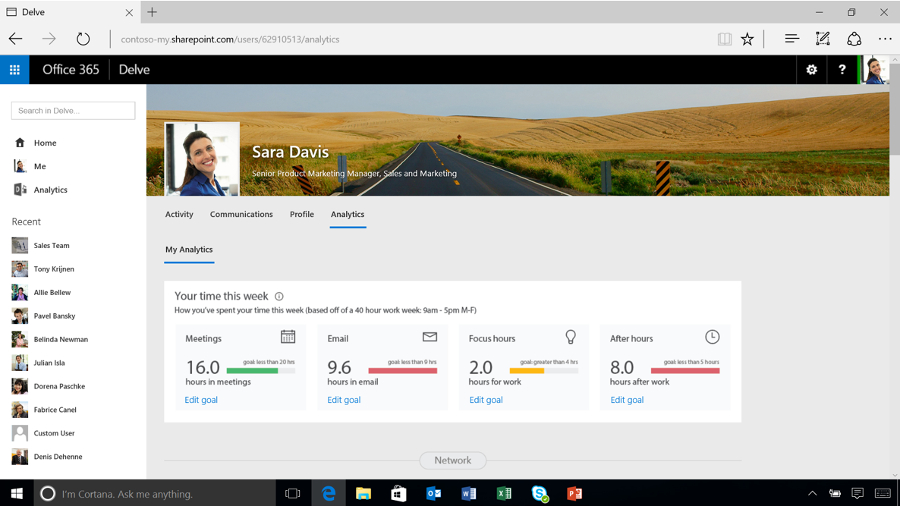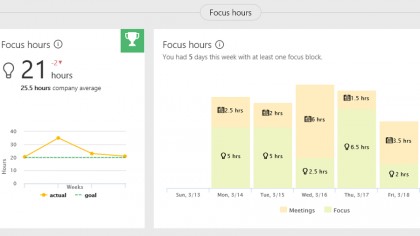The best business dashboards that help with productivity issues
Getting smart about productivity in your company

Sign up for breaking news, reviews, opinion, top tech deals, and more.
You are now subscribed
Your newsletter sign-up was successful
Business intelligence apps are incredibly smart – unless you want to learn about productivity. Many apps show you how many people clicked on a link at a website or purchased a product, and some provide lush graphics related to revenue and sales progress.
Others are designed primarily to show you the uptime for a server and whether a network is humming along. In some cases, you can find a wealth of information about employee tasks and project completion.
However, there hasn't been as much effort in the business intelligence (BI) market to show you whether people in a large company are answering their emails, responding quickly enough, how much time they spend in meetings (or if they are even worth the time), and how productive they are creating and editing documents.
In others words, the part of an employee's effort related to actually doing real work during the day, which often accounts for the majority of their time. In fact, one study from last year conducted by Adobe suggested that employees spend as many as 6.3 hours per day checking email. So much for worrying about network uptime.
Fortunately, that's starting to change with several dashboards that show data related to personal productivity, both for the individual user and for teams. These dashboards show how long it takes to respond to emails, how much time a team spends in meetings, and who is replying most frequently to messages from customers.
They can have a dramatic impact not just on productivity across a company but on the bottom line. These apps reveal not just whether people are completing tasks but how they spend their time and their effectiveness at common activities.

1. Microsoft Delve Analytics
Why you can trust TechRadar
The new kid on the block, Microsoft Delve Analytics, is a powerful productivity dashboard. Employees can find out, at a glance, how much time they've spent processing email, attending meetings, their "focus time" working on documents, and even how much time they've spent working after hours.
Although it's not built-in to the product today, there are some implications about tying the analytics for productivity into the costs involved. For example one scenario might be in determining which meetings are wasting dollars because they involve too many attendees who do not even need to be involved.
Delve also shows which employees have collaborated on projects. You can drill down to see which collaborations involve fast email response times or which contacts an employee has not communicated with enough.
"What makes Delve Analytics particularly interesting is the trove of data Microsoft collects from Office 365 users that Delve turns into analysis," says Charles King, an IT analyst with PUND-IT. "Most of the other productivity apps I've seen focus on helping individuals identify and correct poor work habits. The ability of Delve to mine and analyse Office 365 user behaviour can provide valuable insights for individual workers but their employers can also use the tool to see how various employees and work groups are performing.
"I doubt that workers will be happy to have what amounts to a virtual efficiency assistant peering over their shoulders but it's likely that many companies using Office 365 will find Delve valuable."
Sign up to the TechRadar Pro newsletter to get all the top news, opinion, features and guidance your business needs to succeed!
John Brandon has covered gadgets and cars for the past 12 years having published over 12,000 articles and tested nearly 8,000 products. He's nothing if not prolific. Before starting his writing career, he led an Information Design practice at a large consumer electronics retailer in the US. His hobbies include deep sea exploration, complaining about the weather, and engineering a vast multiverse conspiracy.
